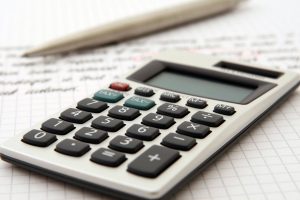Research has shown that HVAC accounts for approximately half of the energy use in a typical home, so if your air conditioner has started to cost more to run, it can have a massive impact on your expenses. So, here we will explore why your air conditioning is costing so much to run.
Air Leaks:
Air leaks are a primary cause of compromised energy efficiency. Although air escaping from your doors and window frames may seem like a relatively minor issue, it can add up to significant energy loss. Even a small leak around a pipe can allow heat back into the room or home. Air leaks will force your AC to work harder increasing your running costs. This is usually simple to fix; you will need to find the leaks and use weather stripping or caulking to seal them.
Thermostat Settings:
This doesn’t necessarily mean your thermostat isn’t working correctly, but this is possible. The most common thermostat issues are actually related to it not being used efficiently. Many people think that while they would feel comfortable when your thermostat is set to 78 degrees, they believe that turning the thermostat down to 72 degrees will cool the home more quickly. This is not the case, and most systems are most effective when the cooling required is 20 degrees less than the outside temperature.
Additionally, your thermostat settings may not be the most efficient. There is no point in having your air conditioning turning on automatically hours before you are due home. So, if your air conditioning costs are mounting, it is worth checking your thermostat settings to check if they are still optimized for your schedule.
Repair Issues:
If your cooling costs are rising, it could be due to repair issues. Even a minor component that is failing can impact your AC bills. Regular servicing can minimize the risk of such problems, but you may still have repair issues that need attention.
Aged Equipment:
Even if you are diligent about servicing your air conditioning equipment, if your system is getting older, it will become more and more inefficient. Air conditioning systems don’t have an unlimited lifespan, and most systems tend to last between 10 and 15 years. So, if your AC costs are increasing and your system is approaching 10 years old, you may need to look at an upgrade.
Dirty Air Filters:
Finally, one of the most common causes of increasing AC costs is one of the simplest; dirty air filters. Air conditioners are equipped with at least one air filter, with some systems having several. The air filters are designed to protect the components of your system and improve the air quality. When a filter becomes clogged, it reduces airflow and forces the system to work harder to maintain the desired temperature. Most manufacturers recommend changing filters approximately every 4 to 8 weeks, during heavy use.

